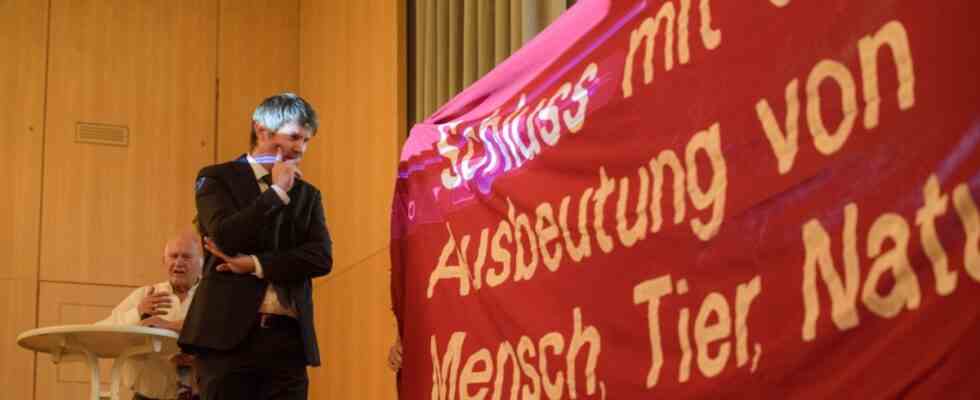The slaughterhouse in Aschheim has long been history. In 2015, investors from North Rhine-Westphalia and England approached the municipality in the district of Munich with plans to set up a large company on a property that partly belonged to the municipality. In 2016, a large majority of residents gave the project a clear rejection in a referendum. But even today, six years later, there are still unanswered questions. In particular, after the costs that the community incurred as a result of the failed business. As is now clear, it is a sum of more than 1.7 million euros.
“The public has a right to know that,” says Eugen Stubenvoll. As spokesman for the parliamentary group of the Free Voters, the lawyer demands that the municipal leadership disclose the background to the sale of the property, which was agreed with the slaughterhouse investors and finally reversed. Since the company in question Opus Munich GmbH und Co. KG was dissolved in 2021, this is now legally possible without infringing on personal protection claims.
The municipality may have lost 1.7 million euros
The Free Voters have made similar motions in the past. In the meantime, however, Stubenvoll has been able to view files on the 2016 purchase agreement and the December 2017 termination agreement. It stipulates compensation payments to Opus Munich Managing Director Albert Oppenheim “for planning costs and other expenses incurred so far”, to which the four property sellers, including the municipality of Aschheim, are committed. The share of the municipality amounts to almost 1.73 million euros.
“With this termination agreement, we have proof that the community – in contrast to previous debates by the administration – did in fact have an expense or damage,” says Stubenvoll. On June 30, the administration replied to a request from the Free Voters that “the municipality had not made any payments to the investors’ companies at the time – neither directly nor indirectly”. The compensatory payments were apparently offset against the sale of the property; as can be seen from the files, the municipality should receive more than twelve million euros for this.
For Stubenvoll, the main question is why the municipality pushed ahead with the slaughterhouse despite the foreseeable resistance of the citizens – the case of a citizens’ request was already provided with a cancellation clause in the purchase contract – and why the contract was ended in the end. These questions, manager Christian Schürer explained to the municipal council, could only be answered by two people: the then Aschheim building authority manager and Mayor Thomas Glashauser (CSU). The head of the building authority is now retired, Glashauser is currently not in office for health reasons.

